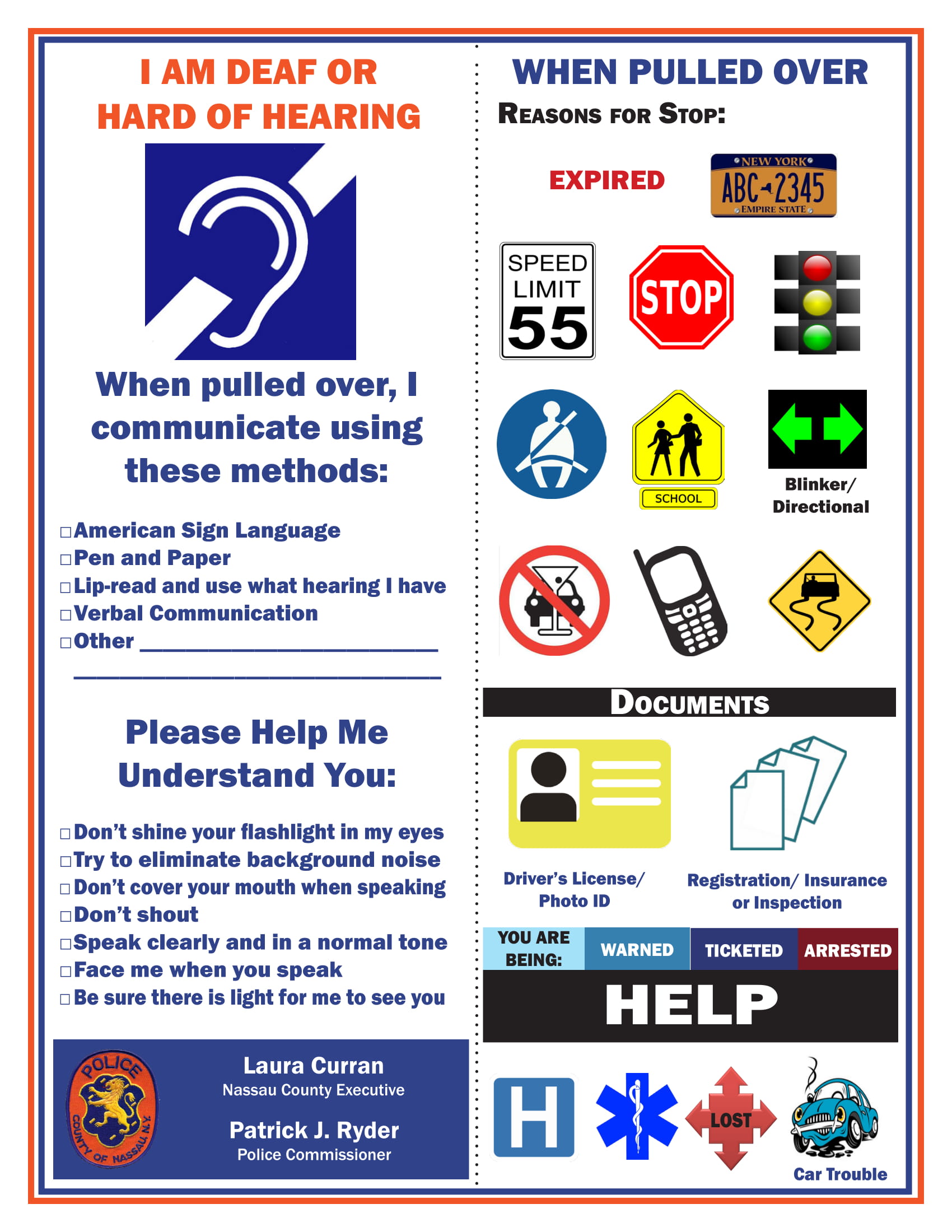The Nassau County Police Department will provide cards to deaf and hard of hearing individuals that they can use to communicate their disability to officers after the county Legislature unanimously passed a law requiring so Wednesday.
The police department will mail the visor cards to motorist that the state’s Department of Motor Vehicles has documented as being deaf or hard of hearing. It will also provide them to county DMV locations, volunteer fire departments and officers.
Motorists can present the cards to officers if they are pulled over. The cards allow drivers to indicate the ways that they communicate and officers to tell the driver the reason for the stop.
“I personally have been in situations where I have been unable to communicate effectively with a police officer when I was at a traffic stop,” said Loretta Murray, executive director of Mill Neck Services, an organization that supports deaf and hard of hearing people, in public comment at the legislature immediately before the law was passed. “It is quite an unnerving experience.”
There have been documented situations in which interactions between police and deaf drivers have lead to police-initiated violence.
The Americans with Disabilities Act requires interpreters for longer or complicated interactions between police and deaf or hard of hearing individuals but not urgent situations or simple ones such as a speeding-related traffic stop.
“There are many misunderstandings, there are many mistakes and there’s a lot of wrong information given,” Thomas Rodriguez told the legislature, communicating in American Sign Language. “I see many deaf people in fear of the police.”
Legislator Josh Lafazan introduced the bill. This law is his second that addresses issues for deaf and hard of hearing constituents. His first, which was also his first law that he passed as a legislator, requires that sign language interpreters be present at county emergency press conferences.
He developed a passion for disability rights as an undergraduate at Cornell University where he took a disability employment policy course. His professor, Thomas Golden, made Lafazan promise that he would prioritize disability policy should be ever be elected to office, Lafazan said.
Lafazan has taken that to heart.
He developed a bond with Mill Neck while campaigning for office. The group told him about difficulties communication with police and showed him examples of visor cards that police in Wisconsin use.
Lafazan met with Nassau County Police commissioner Patrick Ryder to discuss the idea.
“I said, ‘Pat, why can’t we do this like they do in Wisconsin and like they do in New York City?’” Lafazan recalled.
Ryder was fully supportive.
“Legislator Lafazan’s bill will bring awareness, conversation and effective communication with deaf individuals and/or the hearing impaired,” Nassau County police commissioner Patrick Ryder said in a statement. “From the law enforcement perspective, our officers will embrace the ability to communicate positively with hearing impaired individuals whether they are in need of assistance or the victim of a crime.”
Lafazan hopes that the bill will also be passed statewide.
“I believe it will help make those very tense interactions more communicate, more effective and more clear,” he said.



